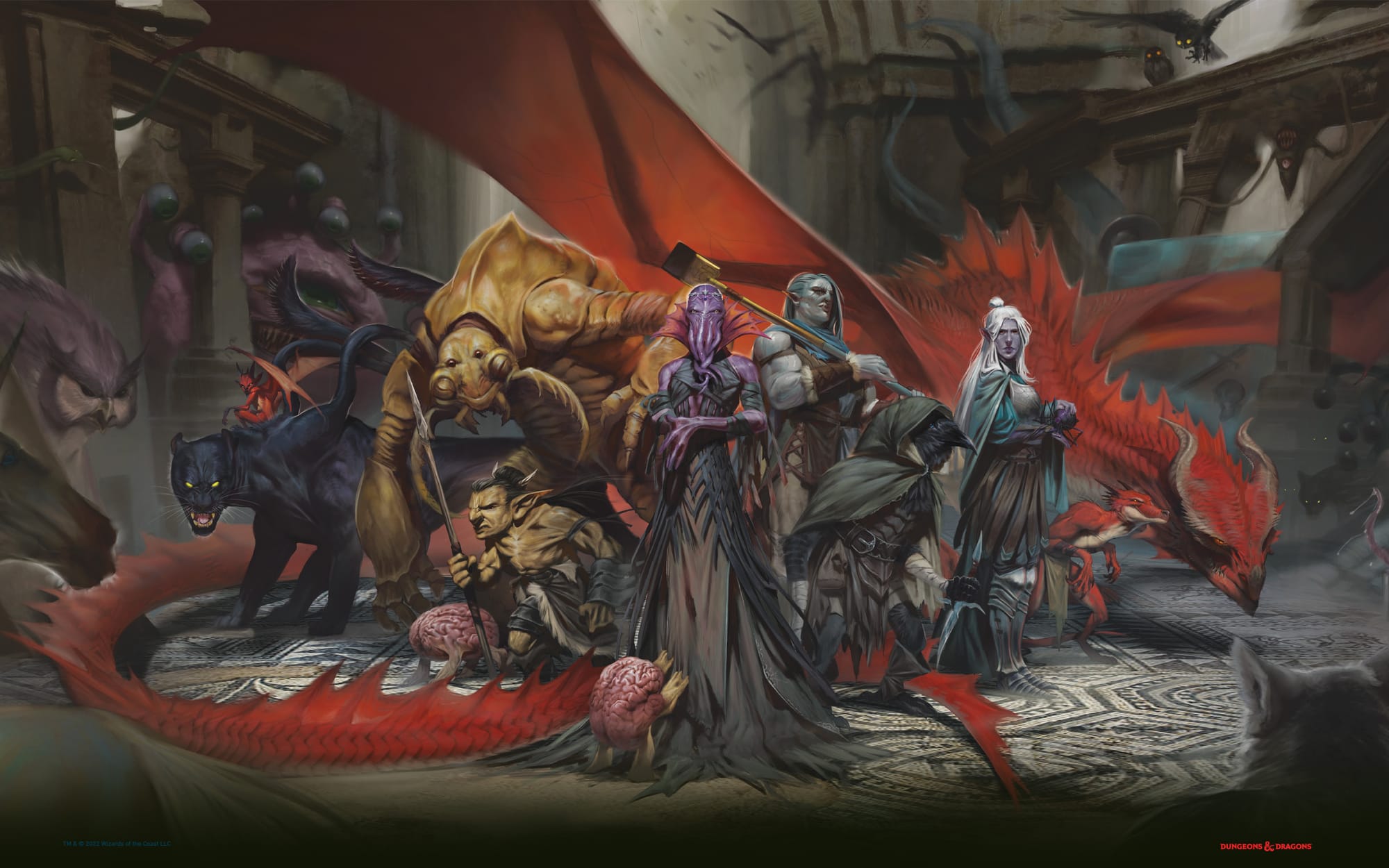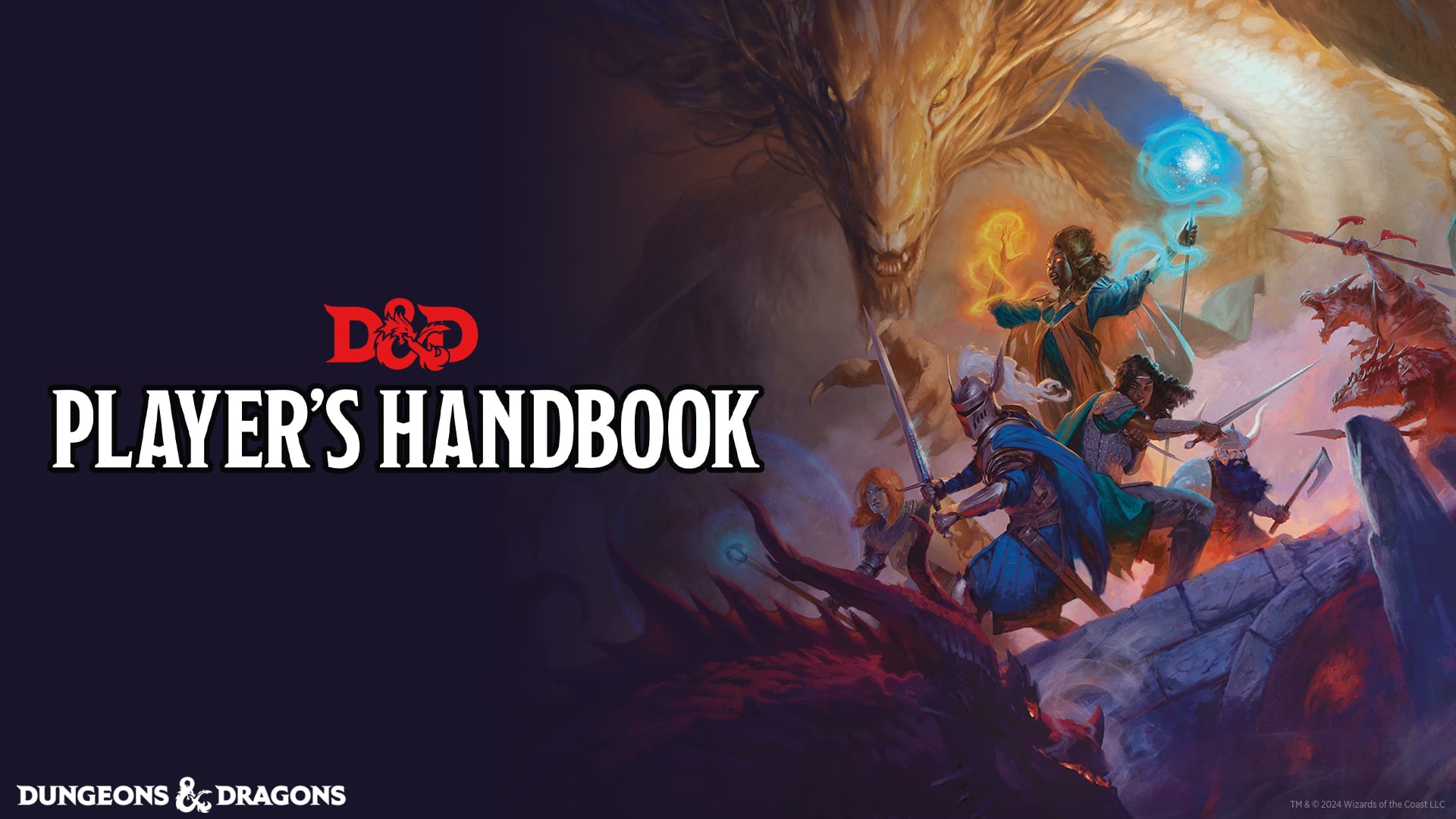Monstrous and Magnificent: Exploring Identity Through Dungeons and Dragons
Self-discovery at the table

At the bar of an ember-lit tavern, my Half-Elf swashbuckler orders a drink. In the confines of the Human town, his pointy ears, long hair, and fair features stand out like a lily among the thorns. The bartender turns to me and with a curious face says, "Well, you don't look Elvish". It was then I realized part of Dungeons and Dragons was not a game, but a reflection. I was bringing parts of myself to the table without realizing it.
At that moment I saw shades of my own life: the difficulties of a person caught between worlds, a person struggling to define and accept what "otherness" is. It reminded me of the countless times I've felt like I didn't belong– like the very nature of my features and idiosyncrasies did not fit within the space I occupied. I quit sports teams and stopped participating in certain spaces because I felt foreign. It took me years to realize it. Through D&D, I found a way to explore my identity (as well as others!) and understand what it means to embrace the "monstrous" portions of myself and be wholly magnificent.
The beauty of the monstrous races (now called species in the newest edition) is they further accentuate difference, prejudice, and otherness. From the moment I rolled my first character sheet, I was drawn to the monstrous races. Why would I want to be a human? I do that every day! Lizardfolk, Tiefling, Half-Orcs, I was drawn to these characters that live on the fringes, judged on what they are long before their actions. I felt drawn to their plight and the chance it gave me to be someone else. Lizardfolk are seen as cold and calculated, a misunderstanding of what it means to see or process the world differently. Tieflings are judged for their demonic bloodlines and are mistrusted simply for their ancestors. Orcs and Half-Orcs are seen as violent barbarians and fight against accusations of pure brutishness. These are just a few examples, and they all carry the weight of prejudice.
That is the essence of D&D, no? To be a character and to be a part of a larger story. These monstrous-looking people add a baroque dramatic layer to a fantasy world. Why make the differences in people minute and arguable when you can dramatize them? This is a fantasy story, after all! This technique disarms and adds levity to the often serious situations players find themselves in. The minute differences that people perceive and cause hate in the real world, become more apparent and understandable in D&D. We understand why an Aarakocra (Birdfolk) might naturally fear a Tabaxi (Felinefolk) or why an Elf might hate an Orc. It makes predicaments more approachable and less visceral when we deal with prejudice and hate.

"Through D&D, I found a way to explore my identity (as well as others!) and understand what it means to embrace the "monstrous" portions of myself and be wholly magnificent."
Part of creating a character or choosing a favorite character from a story is that we see ourselves in them. However, representation isn't always so direct (although that direct representation is important)! We see parts of our greater magnitude in characters, the beautiful little othernesses. For example, I didn't see myself physically in my Lizardfolk character. Still, there were parts of me there I wanted to explore. How would it feel to be a stranger in a strange land? What is it like to be more hard-skinned? What does it mean to live for honor and faith? How would it be to live and not hide who you are?
My journey with my favorite character Hozanek, a Lizardfolk character, has been a walkabout through the jungle. Wild, unrelenting, and filled with moments of revelation. After one arduous battle, Hozanek spent a few sessions shedding his scales and rehardening. I took that home with me and started to shed myself, revealing old scars that I thought were healed. I began realizing some things weren't healed, only buried like a Lizardfolk's clutch of eggs in the swamp. Childhood bullying and prejudice that I did not comprehend left strange scars. Now, with time and reflection, I understood, and I could trace the trajectory of my search for authenticity.
It was when Hozanek returned home to his people that my feelings truly started to set in. Hozanek wasn't welcomed with wide arms and crocodile smiles. There was no massive parade or triumphant return. Sure, Hozanek's den mother and other friends in the village were happy to see him. But, overall, he was met with questions and objections. He now spoke and dressed somewhat differently and brought unwelcome warnings home. He was no longer a "true Lizardfolk"; he was now foreign in his own home.
Despite going through all those trials and turmoils it has led me here to this slow meandering path. What I found in myself through this newfound, and now longstanding, adventure is that I wasn't lacking anything. At the end of that path was a clearing of flowers; each a colorful little celebration of me. I started to come to terms with my particular struggles of self-definition. To accept all parts of myself even those perceived as "monstrous". It didn't matter how people saw me, who they thought I was, or where they thought I should belong. This garden was for me and no one else– no amount of small-mindedness and prejudice could denigrate that.

"What I found in myself through this newfound, and now longstanding, adventure is that I wasn't lacking anything. At the end of that path was a clearing of flowers; each a colorful little celebration of me."
Through Hozanek's scales, I found not that I needed to be more callous but that my softness was already a strength. I found I didn't lack honor and faith but that life had made me cynical, and I needed to shake the blues loose. I learned that being "other" and feeling out of place is OK and that "otherness" provides a powerful perspective.
Moreover, after playing Dungeons and Dragons weekly, I realized we all feel out of place. One good friend at the table plays a Half-Dragonborn with a lower back tattoo echoing the famous Bon Jovi lyrics: "It's my life." Was it funny? Absolutely, but it illustrated the point for me so well! It was a proclamation of ownership and a celebration of uniqueness. Those differences between individuals aren't just communicated in the game but also on the faces of the people around me at the table.
With over two years of playing together, our oldest player took a hiatus saying he was struggling to find his place in the group. I'm happy to report his hiatus was short-lived and he's back! Was it something at the table? Maybe. Was it something going on in his life? That's possible, too. Regardless, it highlights his individual lived experience. These examples serve as a solid reminder that feeling "other" is something we each struggle with. At the end of the day, everyone is trying to find their adventuring party and themselves.
In all that, what I've come to realize is that everyone is navigating the world with their own “monstrous” qualities. The traits that make us feel separate or misunderstood, although sometimes difficult to carry, are the qualities that most empower us. I've discovered that in a game where the monstrous are magnificent, I began to see my real-life differences as worthy of celebration. And that’s the real magic of D&D: It can be more than a fun game you show up for every Sunday. It can be more than a space where you create new stories and worlds. If you roll high enough and cast your spell just right, D&D can help you comprehend your place in this world too.
